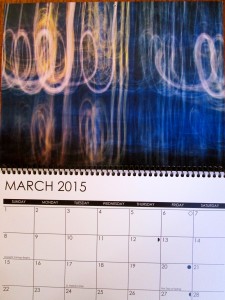Now that I’m officially retired from college adjunct teaching, time has taken on a new dimension. I seem to have several days more of it each week to call my own. I’m reveling in this, like a kid bobbing in an inner tube on a tranquil lake on a sunny summer day sometime in the ‘50s.
My daily To Do list has become less straight-straightjacketed; what doesn’t get done today meanders onto tomorrow’s list. Tomorrow is always just a day away, to paraphrase Annie. The new question, though, has become: A day away from when? To paraphrase my granddaughter Lauren, “Whenev!”
Scientists and philosophers from the beginning of sentient time have ruminated on this slippery subject, and I can’t compete with them in profundity. For me, simply, time is a lot like water – ice cubes when very cold and a warm puddle when heated – the same essential thing but in different forms depending on the context.
It’s been my observation that time is more ice-cube-rigid in colder countries with their fast-paced, “first-world” cultures. For the people in countries in warmer time zones (labeled pejoratively, in my opinion, as “third world,” as in “third rate”), time is more free-flowing, more liquid. These folks are better at “going with the flow” and are therefore less stressed and (dare I say it?) happier.

During my recent trip to Mexico, to attend the world-class San Miguel Writers’ Conference and to explore the possibility of retiring to San Miguel de Allende, I read a wonderful new book of essays by the award-winning Creative Nonfiction writer (“recovering lawyer,” as she calls herself) Carol M. Merchasin, This is Mexico: Tales of Culture and Other Complications (She Writes Press, Berkeley 2015). I was struck, especially, by her observations of time (and money) in Mexico and how her observations paralleled my own in Africa.
Merchasin writes:
“With our forcefulness and our focus on time and money, we might easily think that Mexico, our next-door neighbor, is poor because she drives an old car and wears humble clothing. It is easy to think that we are wealthy because we have more cash. But Mexico is a millionaire many times over. Her wealth is just in a different currency [ie, time]. … Our neighbor has many things we do not. They may look like small things; they may look simple because they do not require money. But they are things we could appreciate, that we could learn from and use” (p. 233-4).
In my memoir, How to Cook a Crocodile (Peace Corps Writers 2010) about my two years’ Peace Corps service in Gabon, Central Africa, as a health and nutrition volunteer when I was in my fifties, my words seem to echo Merchasin’s:
“If, by some sorcerer’s alchemy, time (as a personal possession) could be converted to money, I thought, then Africans would indeed be rich. Most people in the time-pressed West, on the other hand, would be poor. From my observations in Gabon, most Africans had time to sit and ponder, time to visit friends and care for family, time to sing, dance, create, live; they seemed blissfully free of Time’s tyranny. The irony for me was that while the monetarily rich West disparages Africans as being uniformly and pathetically ‘poor’ and economically ‘underdeveloped,’ in terms of their ownership of Time, Africans’ secret is that they are enviably and hugely wealthy” (p. 158).
In French-speaking Gabon, where things (and people) move slowly in the equatorial heat and humidity, I learned that the French word demain, which literally means “tomorrow,” actually means “sometime in the future, but don’t count on it.” Similarly, in Mexico mañana cannot be measured in hours or minutes. How liberating! Warmer climate. Warmer people. Fewer ice cubes. I like that.
Retirement, too, I’m finding, is like living in another country with its own time zone. It’s a time to reset our personal clocks and redefine our concept of “tomorrow.” It’s a chance to break free from the cold, hard tyranny of Time – while we still have time.

La Bonnie!
I love this entry. Mañana isn’t necessarily tomorrow, que no? It can very well be a week from today. Wait until you go to Cuba,…no ice cubes there, more like a boiling soup!
Orale, pues!
la Te
Ah, yes, Te! You understand!
Nice writing, Bonnie. It all sounds good to me. And thanks for taking your readers along to hear Gloria Steinem speak. You made us feel as if we were there! xo
Thanks so much, Suzy. Yes, we’re all on this ride together! — BB
Well you do know about Taos Time Bonnie?- very similar
For me Time is a strange bedfellow- either too little or too much and all a grand illusion. xxj
Yes, Judy, you’re so right — very similar!
Time definitely can be a tyrant! Escaping it’s oppression, suppression, and repression sounds like the best part of retirement.
Loved Teresa’s comment!
You’re a long ways from retirement, Barb, but I’m sure you’ll enjoy it when the time comes.
Well-expressed, Bonnie.
Thanks so much, John. Please feel free to share with your own “over50andoverseas” readership!